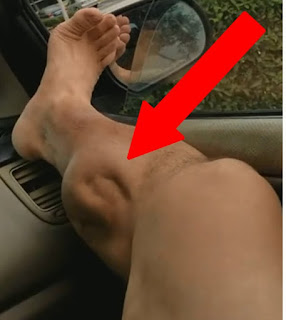muscle cramping
In this post, I am going to explain what is muscle cramping, its causes and how to reduce it. If you are visiting this blog for the first time then please subscribe to this blog. If you are interested in building muscle or gaining strength then I recommend you to read this post till the end because I am going to attach links of muscle building, losing fat and their respective diet links.
Let us come to the point. First of all, what is muscle cramping? It is a sudden and involuntary contraction of one or more muscle. Muscle cramps are more likely to occur in your legs. I have attached an image of muscle cramping.
- Poor blood circulation in legs.
- Working the muscles too hard while exercising. i.e. Overtraining that muscle
- Not doing warm-up/cool down.
- Muscle fatigue
- Dehydration
- Being active in hot temperatures
- Magnesium/potassium deficiency
- having a problem such as spinal cord injury or pinched nerve in your back or neck.
Poor blood circulation in the legs: If you are a person who will be sitting all the time. That is the problem that is making you read this post now. Sitting all the time will lead to the accumulation of lactic acid in your muscle and it leads to muscle cramping. So now you have to stretch your muscles every 1 hour to make blood circulation easy.
Overtraining the muscle: 2-3 sets for a single muscle is more than enough. If you do more than 6-7 sets for a muscle your muscle is not getting trained it is getting strained. Your body can't sustain that amount of intensity. Especially smaller muscles like biceps, calves, forearms, and triceps. for example, you are training push muscles then do 3-5 compound that trains the chest, triceps and shoulders. After that do 3-6 isolations for lagging muscle that includes all the three i.e. chest, triceps, shoulders. Don't do more than that in a single training session. Your body can withstand an optimum amount of intensity.
Not doing warm-up/cool down: If you don't do warm-up before lifting then you are doing the entire thing wrong. Warm-up prepares your body for lifting weights and reduces the risk of injuries. If you are not doing cool down after the workout that causes muscle soreness. A good workout routine starts with a warmup and ends with a cool down
Muscle fatigue: Muscle fatigue is the decline in the ability of muscles to generate force. It can be a result of vigorous exercise but abnormal fatigue may be caused by barriers to or interference with the different stages of muscle contraction. Muscle fatigue is also a result of overtraining. So avoid making your muscle fatigue.
Dehydration: If you don't drink enough amount of water every day then you are dehydrated. The amount of water you should drink will depend on a variety of factors such as your size and activity level. However, as a general rule, I would aim for at least half your body weight in ounces per day excluding water from other beverages such as coffee. I personally go way over this amount but it's a good minimum to aim for.





Comments
Post a Comment